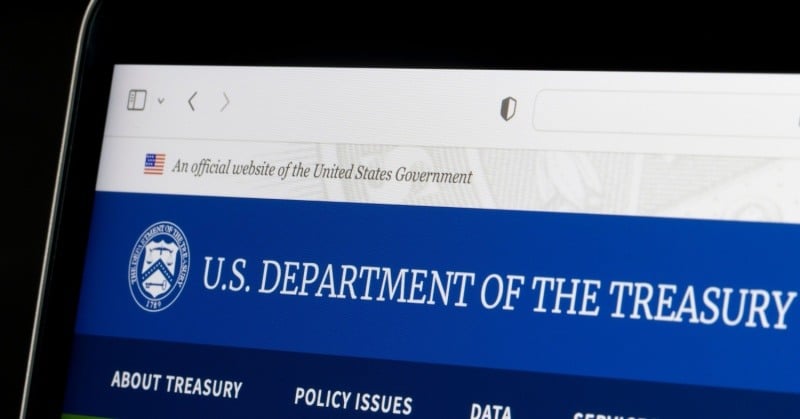Millions of small businesses and their accountants will likely save billions of dollars because a federal court this week issued a preliminary injunction against the enforcement of a national transparency policy, calling it unconstitutional.
The Dec. 3 decision from the U.S. District Court for the Eastern District of Texas, stemming from the case Texas Top Cop Shop, Inc., et al. v. Garland, et al., halts beneficial ownership information (BOI) reporting requirements to the federal government under the Corporate Transparency Act (CTA).
Instead, the individual states will continue to oversee these records, which falls directly in line with the system of federalism the Founding Fathers envisioned and intended.
Background on the Corporate Transparency Act
Enacted in January 2021, the CTA mandates that corporations and limited liability companies (LLCs) disclose their beneficial owners to the U.S. Department of the Treasury's Financial Crimes Enforcement Network (FinCEN). Congress estimates that more than 2 million corporations and limited liability companies are being formed under the laws of the states each year.
The primary objective of this legislation is to combat money laundering and other illicit financial activities by increasing transparency in corporate ownership structures. Under the CTA, entities are required to report personal identifying information of individuals who directly or indirectly exercise substantial control over the company or own a significant percentage of its interests.
Legal challenge and court's rationale
The National Federation of Independent Business (NFIB), along with several small businesses and non-profit organizations, challenged the constitutionality of the CTA.
The plaintiffs argued that the Act exceeded Congress's authority, infringed upon states' rights under the Tenth Amendment, and violated the First and Fourth Amendments by compelling speech and mandating the disclosure of private information.
U.S. District Judge Amos Mazzant sided with the plaintiffs, stating that the CTA represented an "unprecedented" federal overreach into areas traditionally regulated by states, particularly the formation and governance of corporations.
He emphasized that the law intruded upon state sovereignty and imposed burdensome requirements on small businesses without sufficient constitutional justification. Consequently, Judge Mazzant granted a preliminary injunction, preventing the enforcement of the BOI reporting requirements nationwide.
Implications for small businesses
The court's decision provides immediate relief to small businesses that were facing a compliance deadline of January 1, 2025, for submitting their beneficial ownership information.
Many small business owners had expressed concerns about the administrative burdens and privacy implications associated with the reporting requirements.
Even FinCEN admitted that the hours of paperwork and related tasks necessary for compliance would cost $126.3 million in the first year of the reporting requirement (as existing small businesses come into compliance with the rule) and $35 million in the years after.
Furthermore, FinCEN estimates that the total cost of filing BOI reports is approximately $22.7 billion in the first year and $5.6 billion in the years after.
The injunction alleviates these concerns, at least temporarily, by suspending the enforcement of the CTA's provisions.
Reactions from the business community
The NFIB, representing approximately 300,000 small businesses, hailed the ruling as a significant victory. Beth Milito, Executive Director of NFIB’s Small Business Legal Center, remarked, "This ruling is a huge victory for small businesses nationwide, and just in time.
The BOI reporting requirements are a harmful invasion of small business owners’ privacy and a misuse of their valuable time."
Future outlook
While the preliminary injunction halts the enforcement of the CTA's reporting requirements, the legal battle is likely to continue.
The U.S. Department of Justice may appeal the decision, potentially bringing the case before higher courts, including the Supreme Court. Until a final resolution is reached, the future of the BOI reporting requirements remains uncertain.
Recommendations for accounting professionals
Accounting professionals, including CPAs, enrolled agents, bookkeepers, controllers, and CFOs, should closely monitor developments related to the CTA and its reporting requirements. Staying informed will enable them to provide accurate guidance to their clients regarding compliance obligations.
Additionally, professionals should be prepared to assist clients in navigating any future changes to reporting requirements that may arise from ongoing legal proceedings.
For a detailed explanation of the original BOI reporting requirements under the CTA and best practices for compliance, refer to Navigating BOI Reporting: A Guide for Accountants on The Woodard Report. This resource provides actionable advice for accountants to support their clients if and when BOI reporting requirements are reinstated.
In summary, the recent court decision to block the enforcement of the Corporate Transparency Act's beneficial ownership reporting requirements marks a pivotal moment for small businesses and the accounting professionals who support them.
As the legal landscape continues to evolve, staying informed and proactive will be essential in ensuring compliance and safeguarding the interests of small business clients.
.png?width=150&height=63&name=TWRlogo-regmark_blueblack%20(1).png)
.png)










Do you have questions about this article? Email us and let us know > info@woodard.com
Comments: